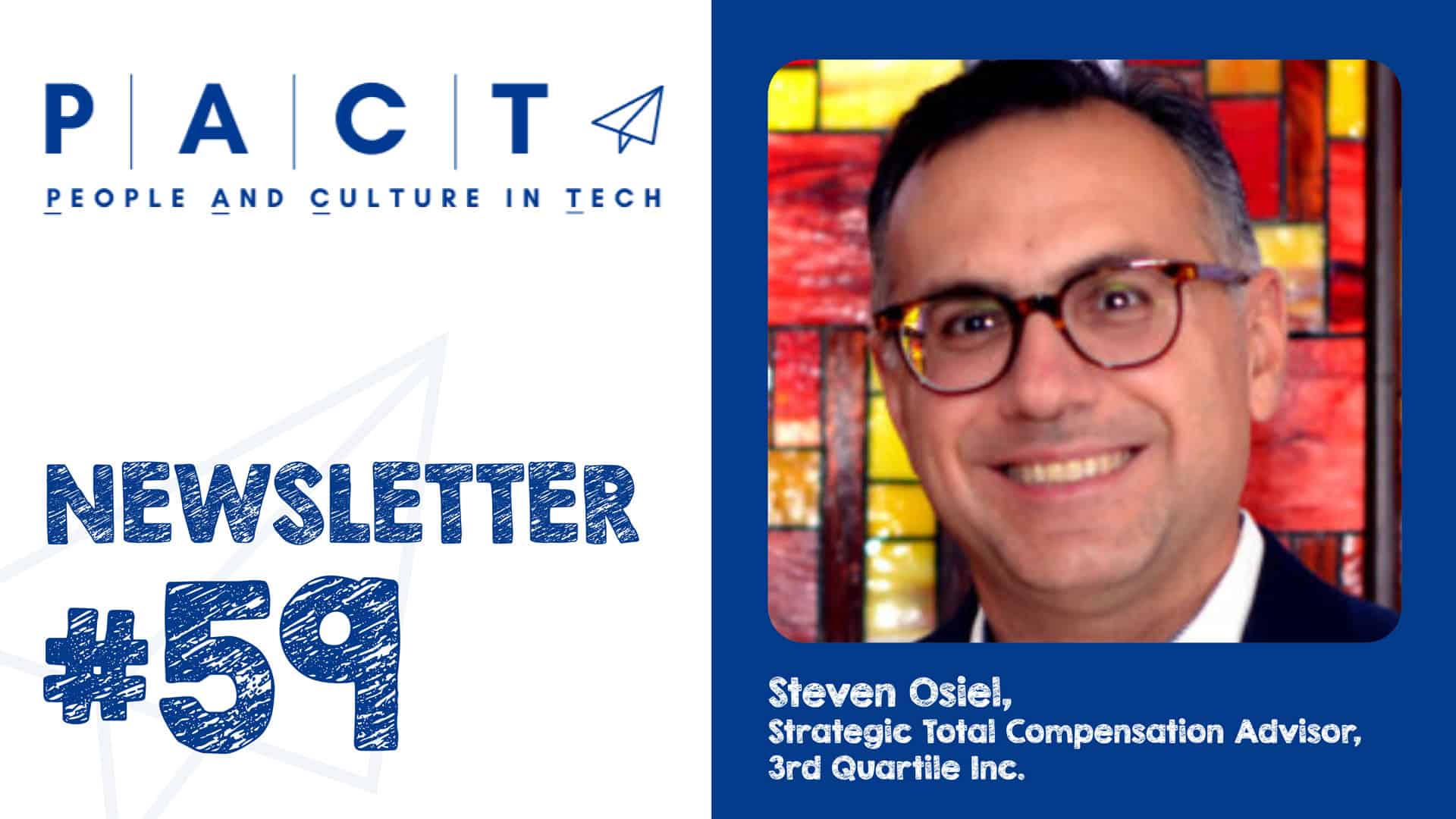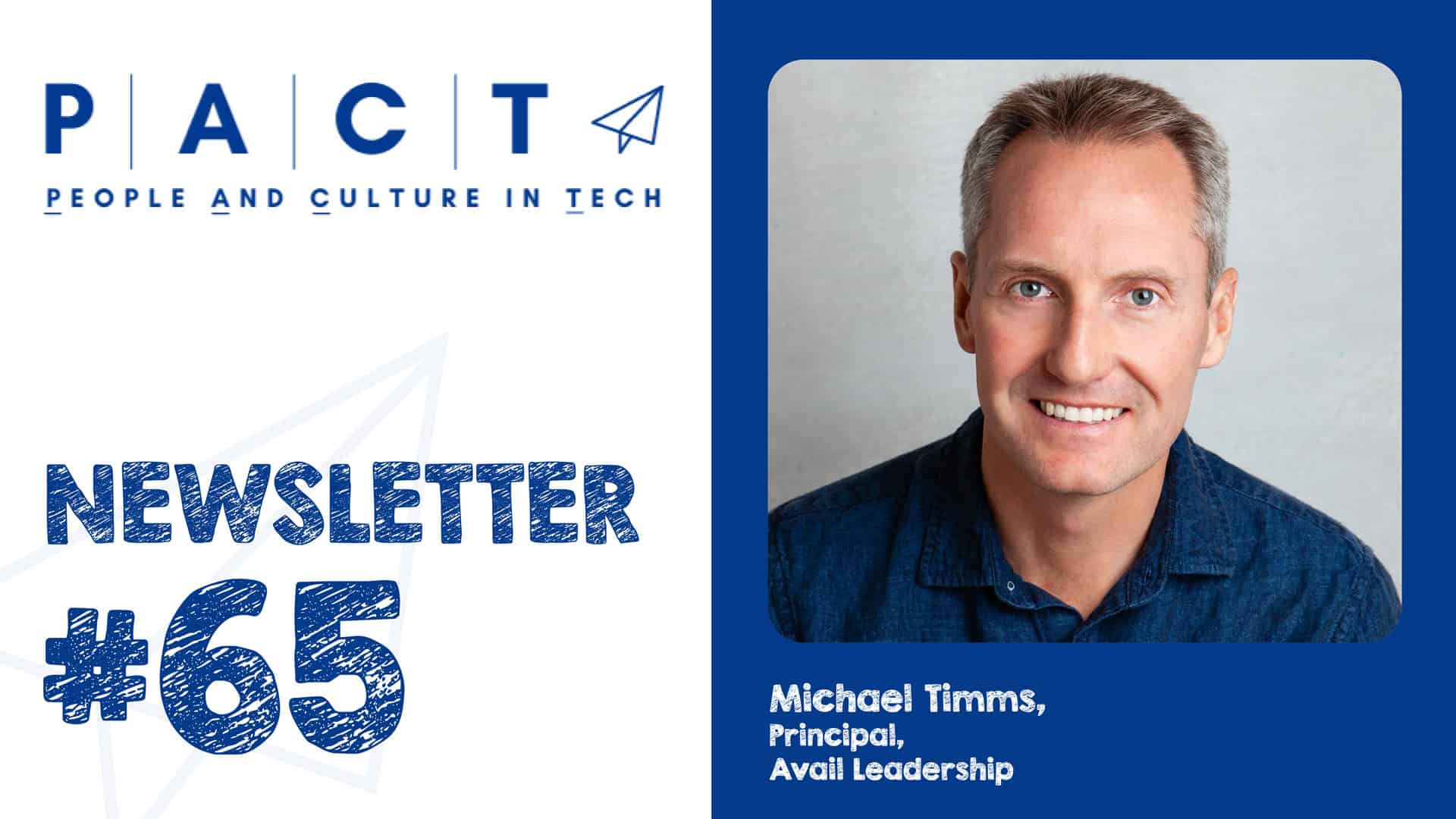Steven Osiel Talks Importance of Taking Total Compensation Conversations Beyond the Numbers
Jason McRobbie

When it comes to dollars and sense, the bigger picture of total compensation has changed so much in the post-pandemic world that many leaders in tech are still in transition. We sit down with 3rd Quartile Inc. founder Steven Osiel to talk about the state of total comp in a pay-focused present and why some leaders are struggling to strategically steer compensation conversations beyond hardcore numbers alone.
Key Takeaways:
- While leaders in tech were considered masters of melding culture and total compensation in the pre-pandemic world, many are struggling to readjust thinking and offerings in a world wherein ‘the office’ remains more concept than core;
- Given financial stressors and the impact of pay transparency, there is a greater focus on the purely fiscal aspects of compensation conversations than prior;
- Given the remote aspect of remote work, the challenge of building bonds and accurately assessing talent for development or promotion has led to greater waves of new hires racing elsewhere for the next step; and
- Leaders need to refocus their offerings, but most importantly, build trust from the start with new hires, by slowing the pace of compensation conversations to delve into those non-pay aspects which speak to security and slowing the pace of the great race.
With a Bsc. in Psychology and a Masters in Human Resources, Steven Osiel, founder of 3rd Quartile Inc., has always taken a more nuanced approach to helping businesses finesse the fiscal and build benefits that create bonds as part of a larger total compensation picture.
As a total compensation consultant who takes tech to heart, when asked how well Canada’s tech industry is managing that bigger picture in what has always been a volatile market, Steven sees a stark dividing line drawn between the old and new worlds or work.
“There’s really a pre-pandemic and post-pandemic answer. From the pre-pandemic perspective, I think tech companies were doing a very progressive job of creating great work cultures. From the styles of the offices to the events at those offices to the conversations and seating arrangements at those offices—they were much better than any other organizations. There was much more of a welcoming environment than in other industries. There was a lot of food brought in, lots of laughter, music, pool tables,” said Steven. “Then, all that went away.”
The pandemic changed that framework irrevocably and the financial stressors since have done much to affect what Steven views as an increasingly singular focus on pay. The move towards pay transparency in Steven’s opinion, while likely to help amend prior gender inequities, is also putting further focus on the fiscal.
“Of course, the disposal income pressures are higher than ever—whether that’s the inflation rate, housing and food costs or school loans. Whatever the reason for things being more expensive, there is that much more pressure on people to be making money,” said Steven.
“The other push I am seeing is to be higher in your career than you would or could have been under normal circumstances, so there is a definite push for pay.”
He points out that while the same industry commitment to wellness, diversity and flexible leave remains, its perceived value has changed in the post-pandemic reframing of the work/life picture.
“It’s in the post-pandemic world that all of those other elements that make up the total compensation have really taken a hit. Well, we’ve got the benefits, we’ve worked on the paid time off, maternal and parental leave. We’re doing all that and believe, but how then do we tie it to the physical assets and programs we had in place?” said Steven, who stresses it is a question that needs answering.
The importance of doing so is only magnified by the ongoing flux of remote work and the impact of pay transparency narrowing prior options.
“From a strategic, total comp perspective, tech was really good, took a hit and is having to reorganize their differentiators,” said Steven. “Now in a world of pay transparency, we should be shifting over to a total compensation conversation where pay is going to be more exposed. As a result, companies have to again push to differentiate themselves based on other opportunities—career progression, bonus and equity opportunities.”
New year, new projects, new goals. Get fresh talent, like co-op students, through your doors to help tackle this complex future. Waterloo students bring new skills and perspectives to help you be future-ready. Learn about our future-ready talent framework.
Above all, Steven recommends ongoing flexibility around demands for remote work, while the industry as a whole settles on the matter.
“It’s really tailoring for this new reality that we are grappling with and right now the big thing is around remote work and those 2, 3, 4 days in the office. That ‘time-in-the-office’ decision point is make or break it for individuals seeking employment at any particular employer. Once we settle on some sort of consensus either Canada or North America-wide, we can then differentiate and improve upon it, but at least we will have standard that will let us move back to these other elements of compensation that will be the real differentiators.”
Steven points out that this requires a bit of rethinking for leaders in a market where dollars need to be doled out more deliberately.
“The emphasis wasn’t quite there before, but now it’s shifting and this requires a new understanding of the criticality of positions. Leaders need to ask, ‘Which positions are my nuts and bolts? Which are critical to our success and sustainment? Not individuals per say, but what jobs do I really need and how do I differentiate?” said Steven. “Those are the jobs that are critical and getting them filled with the right people with the right skills needs to be of the utmost importance to you.”
Moreover, finding the means to find and keep that core talent needs to come to the forefront for leaders, Steven stresses, as he is seeing turnover rates in tumult and plenty of new faces within organizations.
“It’s the commoditization of careers—the Uberization of jobs—this idea of 18 month careers or assignments almost. Maybe that’s okay. Maybe it’s the new Renaissance and there’s just that much more acceptance of turnover of talent for hire and everything just becomes that much more transactional. That might be the new world,” said Steven. “Working as I do with HR in organizations, I am seeing so new hires many who have been there 13 or 14 months,” said Steven, who points to the diminishment of key daily contacts—once key in the total compensation picture—as contributing to the lack of apparent bond.
“One of the collateral damages of the work from home culture is the lost conversation—the before-meeting, the post-meeting—along with walking by and seeing the efforts, enthusiasm and energies of the people involved. All of that is very hard to observe right now,” said Steven. “So, people are getting on those Zoom meetings, doing the work and waiting to progress in their careers, but since that’s based on being acknowledged and seen as loyal and contributing, it’s harder to see now.
The end result, when talent is looking to progress, Steven sees a trend towards looking elsewhere—largely based on the challenges with forging the ties for which tech was renowned. Finding new ways to build those bonds, he acknowledges, is something leaders’ need not do alone, but with a shared purpose.
“I think there is a big role for HR to play, especially when you look at the metrics and what your goals are as an organization. If your goal is retention, okay, it’s not going to be 10 years, but you need to ask, ‘Can we move the needle from 18 months to 36 months and how are we going to do it?'” said Steven. “If your goal is a minimum 36 months retention, then put in programs that start at 30 months. Make something happen that people can look forward to. Don’t just put all your cards on the table today with nothing to come—incrementally, make it happen.”
Moreover, he stresses the importance of ensuring micro-measures don’t miss the mark with your more long-term talent. “Just because somebody has been there for four years and they like it there, you don’t need to direct the fiscal energy like before, but you need to put other energies towards that four-year person to keep them.”
Above all else, Steven believes in rebuilding the bonds once taken for granted in the office setting, while acknowledging that the new normal is already the only normal that talent graduating into pandemic have ever known.
“Newer and newer grads never experienced that old version of normal. This is all they have known for the past four years. In essence, you and I are immigrants to this new world. We saw the old world and we compare it to this new world, but there are already natives to this new world and this is all they know,” said Steven. “So there is very much a difference between that native and immigrant experience and the immigrants are the ones in control as the leaders of organizations because the graduated further back than three or four years ago. For those old world leaders to try and explain to these new world natives that this is the way the world works, well, they need to rethink.”
Leaders need to keep flexibility top of mind not only to complete their transition to this brave new world, but to create the total compensation packages that once again attract and keep top talent in tech—because ultimately dollars can only do so much.
“What people are really looking for at the end of the day is peace of mind and security. Nonetheless, there’s an illusion that a $5,000 pay difference is really going to truly and fundamentally make a difference in your life—when it really doesn’t. It may make a difference, but nothing fundamental,” said Steven. “People want that security, so the more an organization can wrap a person around the security of their wellbeing and of their family, of providing that work/life balance and those opportunities for growing—and explaining all of these things—the less important that $5,000 is going to be.”
That begins, Steven believes, with removing the adversarial aspect of compensation conversations from the start. In fact, keeping people in your corner, largely comes down to slowing what Steven sees as the race.
“We race in our own minds to see how quick and far we are ahead. We race in terms of the number of things we can do. We race to how many places we can divide ourselves between friends and family and kids. So, peace of mind is really important and part of peace of mind is taking that adversarial aspect of compensation conversations off the table is key,” said Steven. “Letting them know, ‘OK, we’re not screwing you and you’re not screwing us. We’re going to work together for the betterment of each other and this organization. We’re not going to overpay you now, just to fire or downsize you a year from now.”
And while pay will always be prioritized for both parties and there are limits to what can be promised, Steven stresses the benefit of setting the pace with purpose.
“There are always limitations and things ‘everybody has’, but you can slow down the conversation and really outline these things during the recruiting process, hiring and onboarding. You can take that time to communicate what is it you’re offering beyond just the hardcore number.”
BACK








